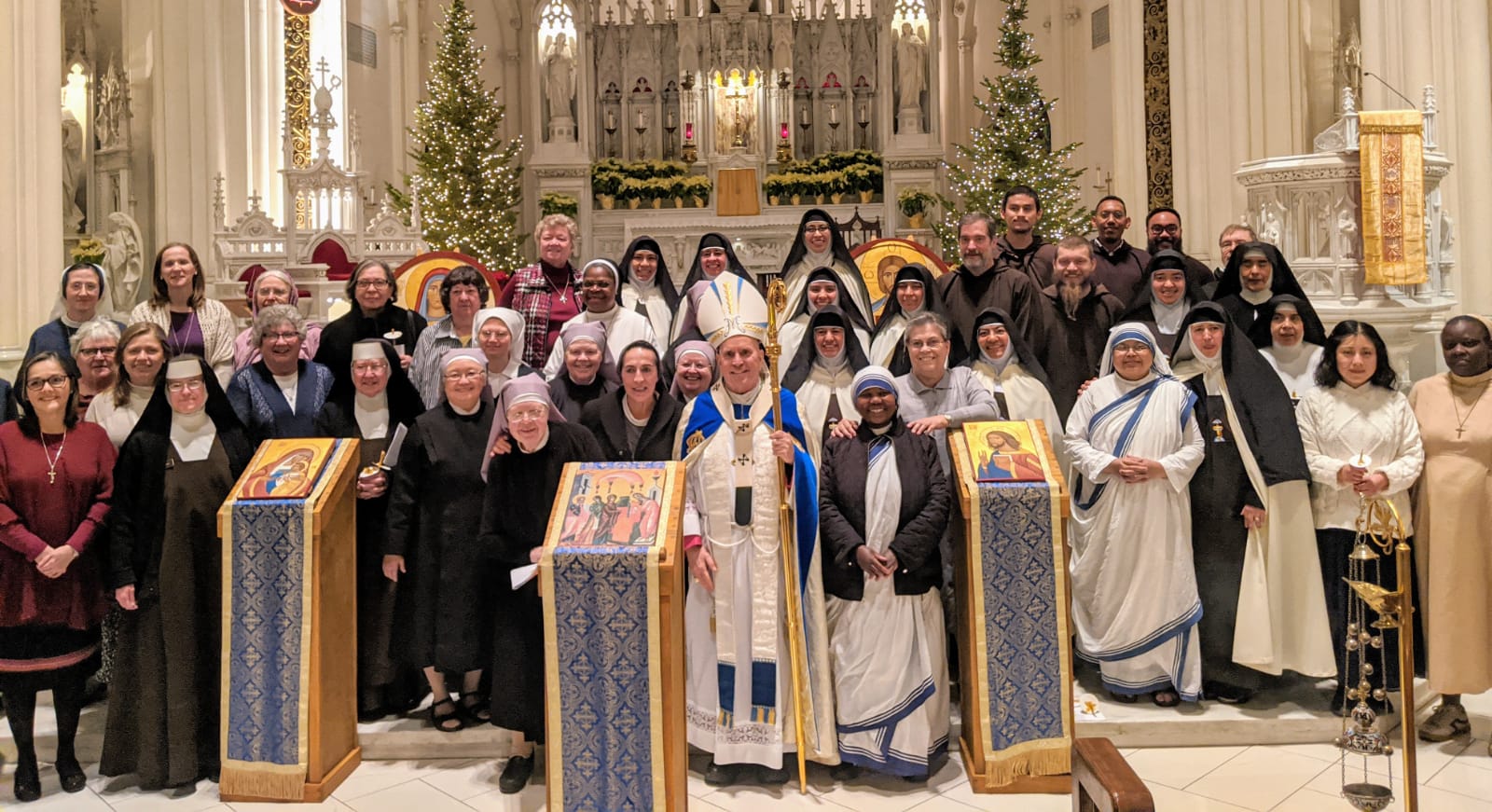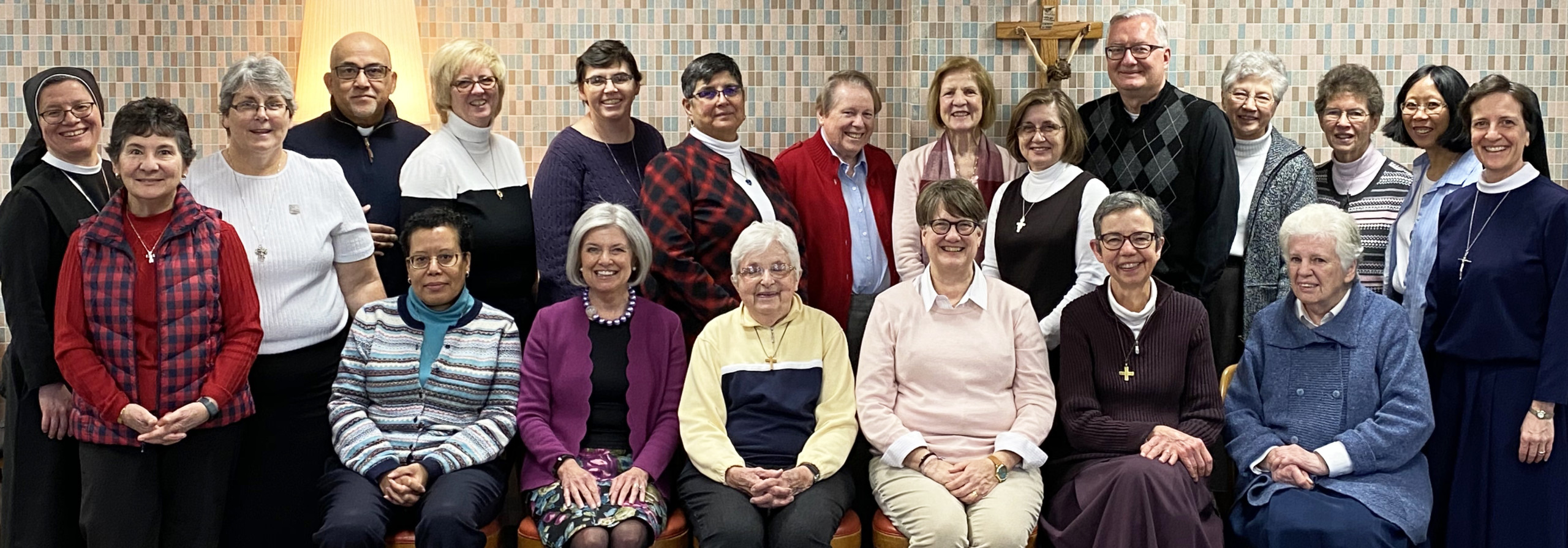Today’s world, struggling with the urgent needs emerging from the Coronavirus, can learn from the witness of sisters, said the presidential team for the Leadership Conference of Women Religious.
“Women religious have a history and a genius for looking outward beyond ourselves, for responding to need, for taking a situation that we did not choose but for which we find ourselves dealing,” said Holy Cross Sr. Sharlet Wagner, past-president of the LCWR, whose members are leaders of communities constituting nearly 80% of women religious in the U.S.
“That is where the world is now.”
Wagner shared her reflections in a May webinar, speaking alongside the rest of LCWR’s leadership.
A world in crisis can learn much from the experiences of women religious – a global community that historically found their stride in times of chaos, as Sr. Carol Zinn, SSJ, LCWR Executive Director, explained. The pandemic leaves no lifestyle untouched, including that of sisters.
“Whatever we could say about COVID-19 in our country and around the world right now, we could say about religious life in our country and perhaps, around the world,” Zinn said.
The LCWR leaders shared the practical and spiritual implications of this pandemic on US religious life: the economic challenges facing their sponsored ministries, fears for their elderly sisters, the poverty and societal injustices that demand collective response and the need for a transformative sisterhood – one that goes beyond collaboration and instead prioritizes true partnership.
Recalling how the Spanish flu (1918-1919) was an impetus for more sisters getting involved in healthcare, Sr. Jayne Helmlinger, current president of the LCWR, said the response to today’s pandemic should not be merely “with ourselves, our congregations,” but with collective action.
Pope Francis said that the coronavirus had put everyone “in the same boat”. Sr. Helmlinger said
she’s reminded that from Earth to the cosmos, “we are one. So how do we respond as one, not simply with our congregations, but [to] the needs of the world?”
As women religious, they need to pay attention to the newly marginalized and to emerging needs as they consider their role in responding to the crisis.
“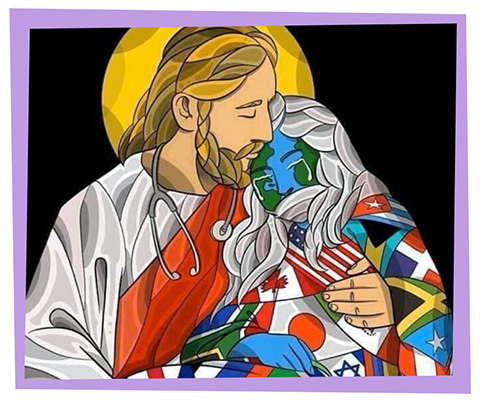 of us have long struggled with what it means to live simply, and we may be forced by realities into deeper examining of simple living and the choices we will need to make,” Sr. Wagner said.
of us have long struggled with what it means to live simply, and we may be forced by realities into deeper examining of simple living and the choices we will need to make,” Sr. Wagner said.
To best serve those disproportionally affected by the virus, religious leadership will have to consider how their direct service, advocacy and spiritual leadership can be pooled across borders in a coordinated response.
“What new ministry and new ways of ministering will emerge as we move through this crisis and beyond?” Wagner said.
Now that COVID-19 is likely to influence emerging expressions of religious life, Sr. Zinn cited four characteristics particular to U.S. culture that LCWR membership must now confront as they reimagine the future:
First is the illusion of autonomy shattered by the pandemic.
Religious life in the U.S. will be shifting from feeling competitive (within charisms, for example) to becoming partners. “What does it mean to be partners, be sisters together?”
Going from a sense of ownership to a sense of mutuality. Cross-charisms and cross-congregations ought to become trans-charisms, trans-missions, trans-cultures – a sense of mutuality that younger sisters already understand.
A shift to a great appreciation for vulnerability as she reflects on the essential workers who the pandemic has thrown to the forefront.
“The DNA of religious life is that we are born in and out of chaos.”
To read the entire article click here


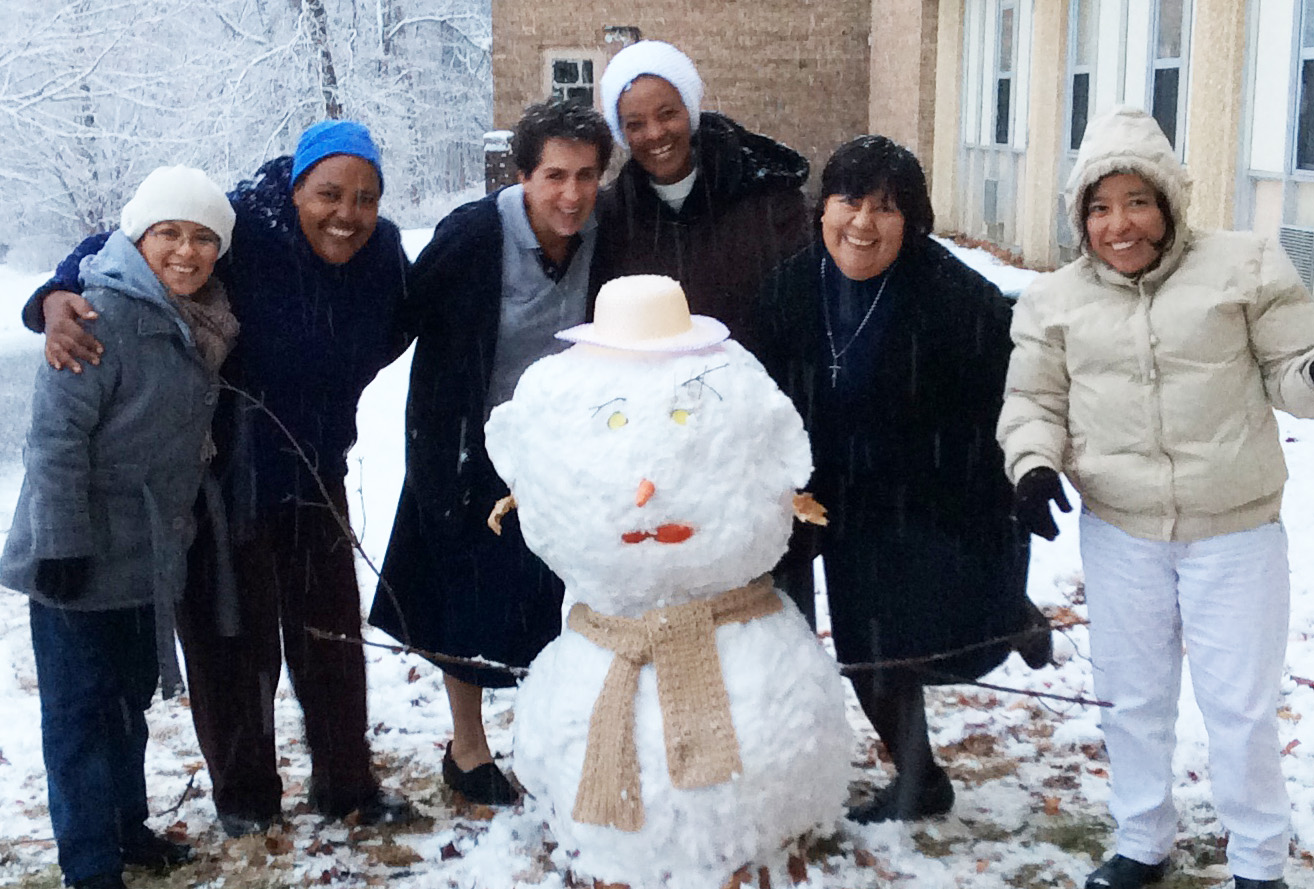 Most newer members (74 percent) participated in a “Come and See” experience(s) before they entered their religious institute.
Most newer members (74 percent) participated in a “Come and See” experience(s) before they entered their religious institute.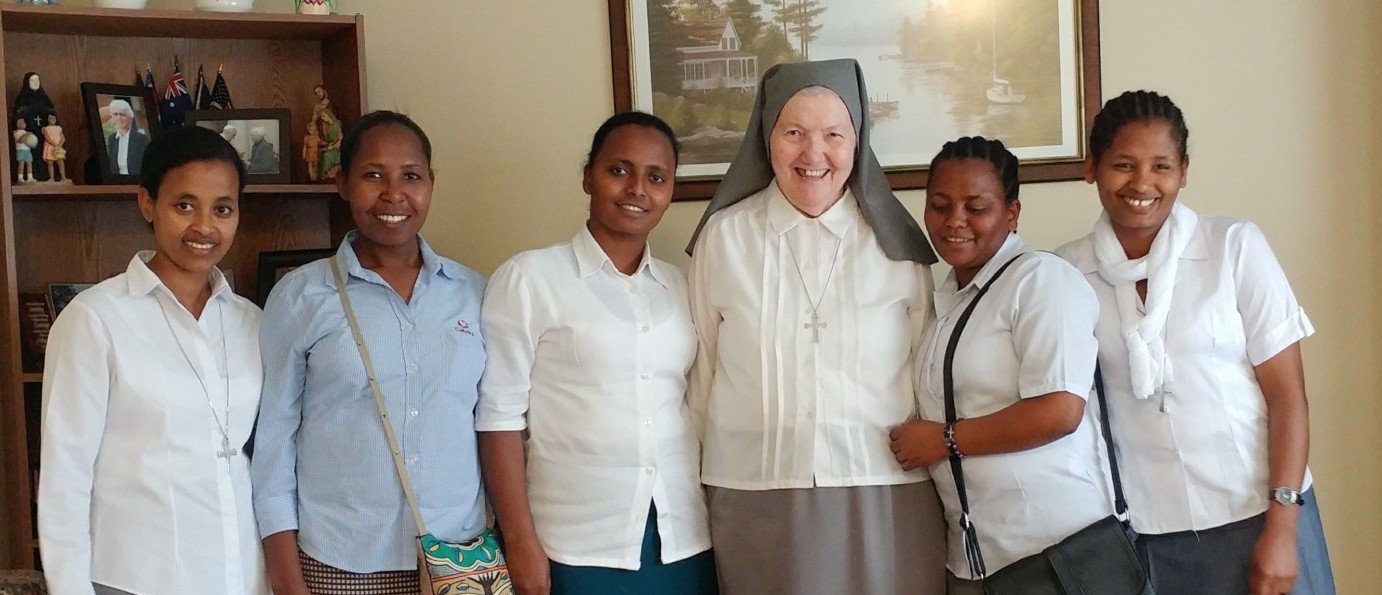
 National Catholic Sisters Week (NCSW) invites everyone to celebrate women religious from March 8-14.
National Catholic Sisters Week (NCSW) invites everyone to celebrate women religious from March 8-14.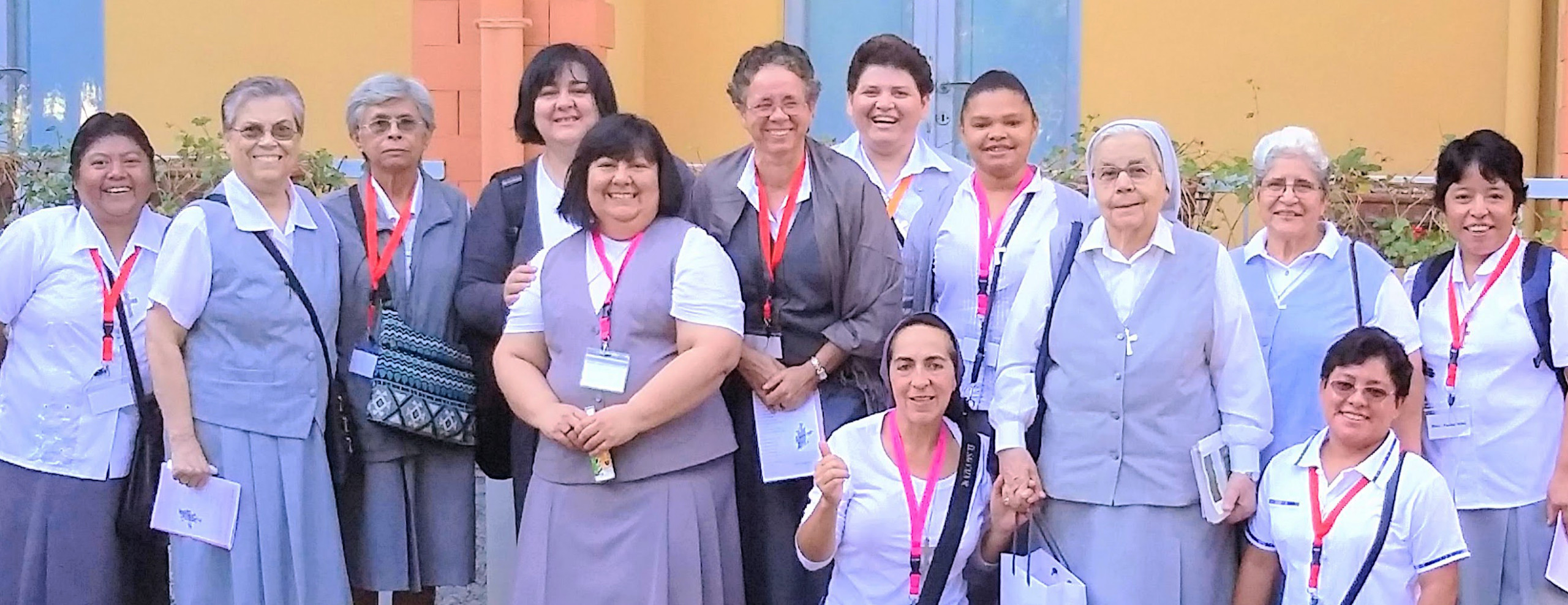
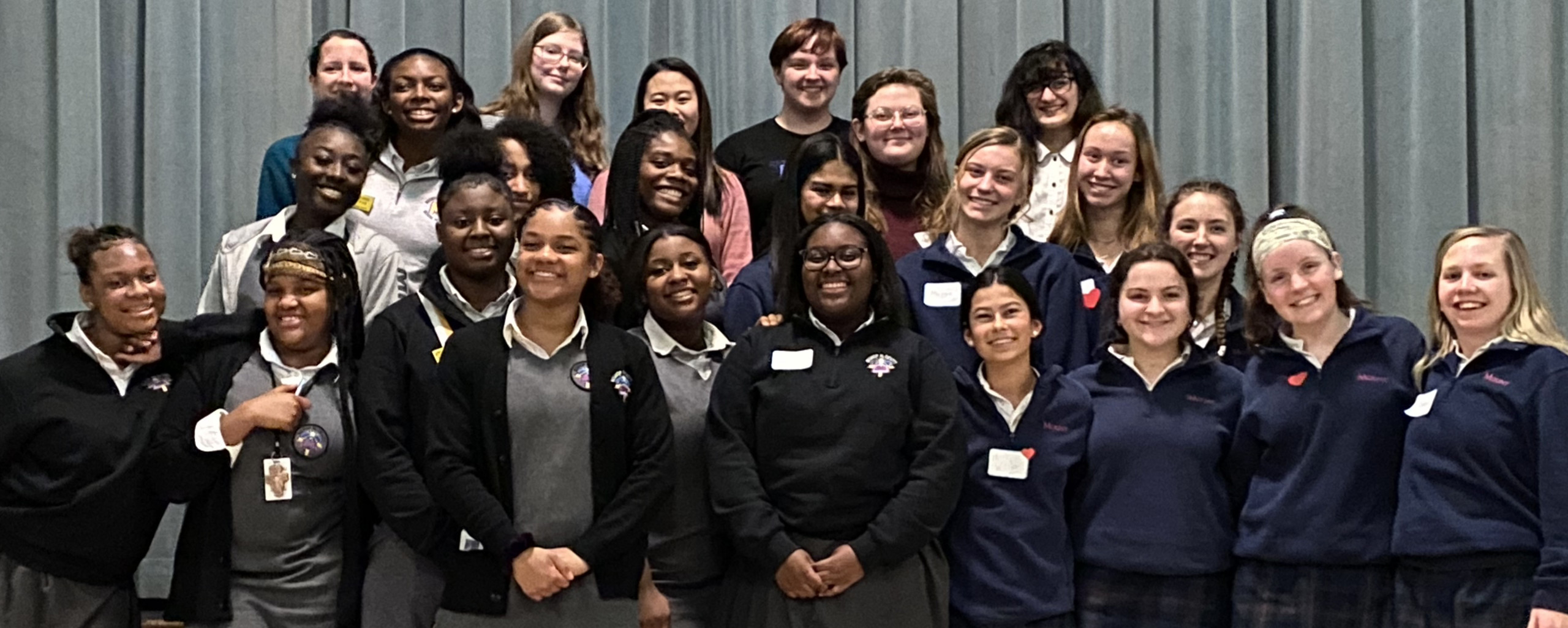 A second offering of the Gift of Mission vocation awareness program was presented this winter to a group of high school junior girls by an intercongregational team of sister religious. This time, the workshop was held at the Motherhouse of the Sisters of St. Joseph in Chestnut Hill, PA. The day offers a means of learning more about vocational calling and religious life. Interactive sessions and opportunities for prayer and meditation highlight the day. The Missionary Sisters play an active part in the planning and presentation of the day.
A second offering of the Gift of Mission vocation awareness program was presented this winter to a group of high school junior girls by an intercongregational team of sister religious. This time, the workshop was held at the Motherhouse of the Sisters of St. Joseph in Chestnut Hill, PA. The day offers a means of learning more about vocational calling and religious life. Interactive sessions and opportunities for prayer and meditation highlight the day. The Missionary Sisters play an active part in the planning and presentation of the day.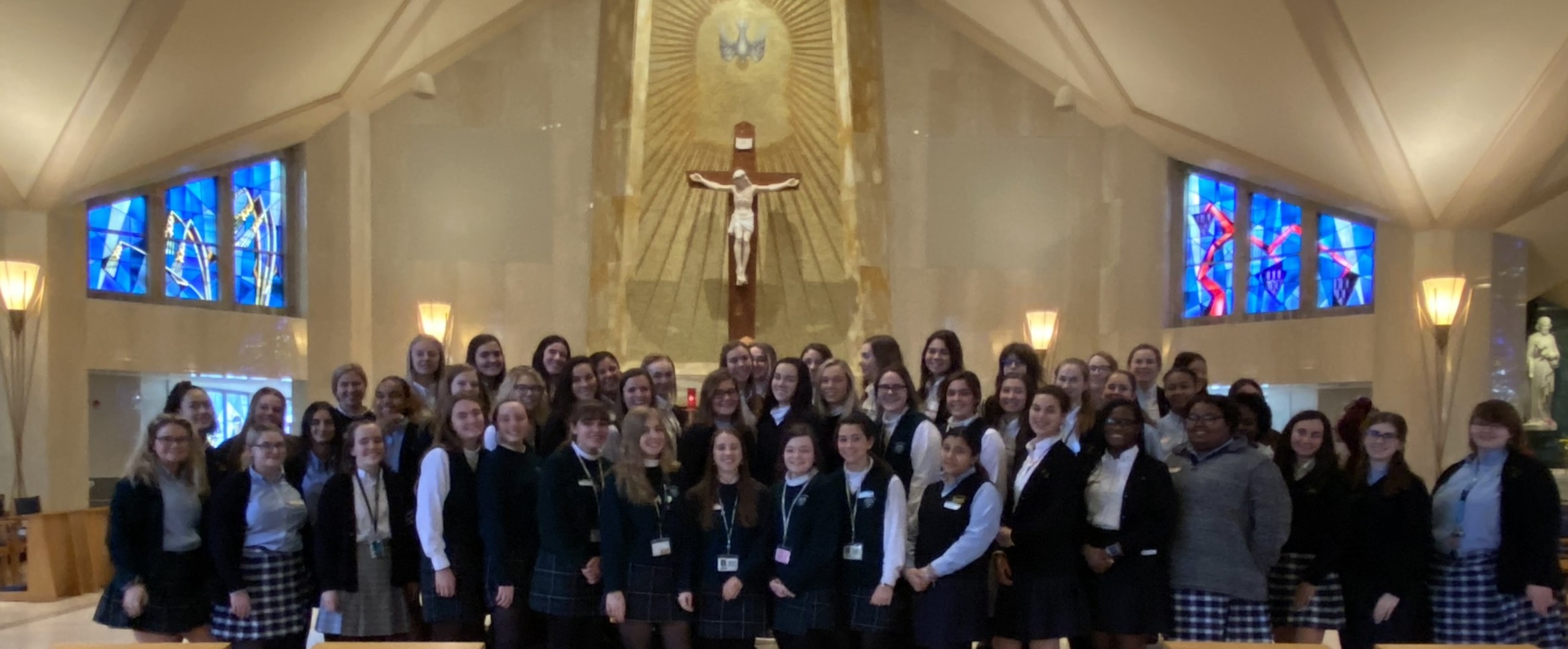 Each year, the Missionary Sisters participate in the Gift of Mission interactive vocation program for high school juniors. Yesterday, over 60 students hailing from Bishop Shanahan H.S., Pope John Paul II H.S., York Catholic H.S., and McDevitt H.S. in PA and Gloucester Catholic H.S. in NJ joined an inter-congregational team of vocation directors for the workshop.
Each year, the Missionary Sisters participate in the Gift of Mission interactive vocation program for high school juniors. Yesterday, over 60 students hailing from Bishop Shanahan H.S., Pope John Paul II H.S., York Catholic H.S., and McDevitt H.S. in PA and Gloucester Catholic H.S. in NJ joined an inter-congregational team of vocation directors for the workshop.